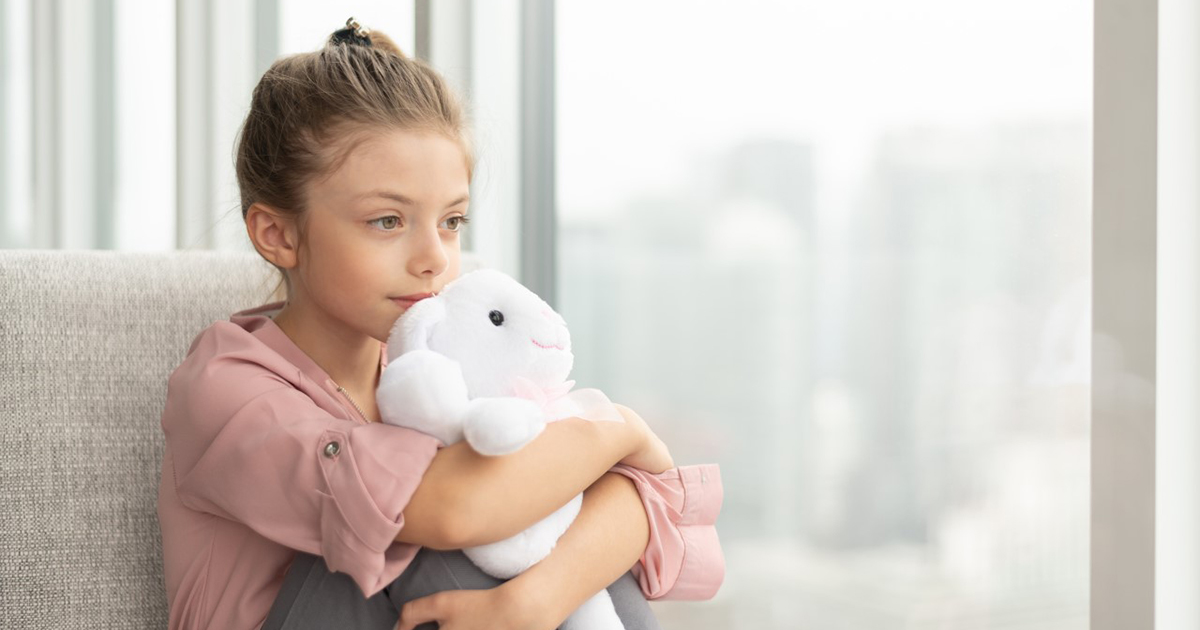Everyone seems to be talking about coronavirus – on the television, in social media, and wherever people still congregate. It’s virtually impossible to avoid the scary news. There’s a good chance young children in your home are struggling with anxiety and confusion. Children, however, often have difficulty articulating their questions or concerns. They can also sense our own unease. We spoke with Saint Francis Ministries’ Clinical Director Pamela Cornwell about ways to help the children with anxiety caused by the COVID-19 crisis.
“I think children have a sense that something is going on,” said Pam. “Although it’s hard to say whether they know exactly what that is, they do see the adults around them acting differently. Children are emotionally in tune with the significant adults in their life, so if we’re anxious and upset, they can sense that. They know something is wrong.”
With that in mind, here are a few tips to help kids cope:
- Take care of yourself first. As in flying, put the oxygen mask on yourself before turning to your child. There’s good reason for this. You can’t help them if you’re incapacitated. Do what you can to make yourself calm and relaxed. Avoid information overload, and make sure the news you consume is accurate. Right now, plenty of official sources exist on the Web where you can get solid, accurate information. Saint Francis Ministries has listed many of them on our own website at SaintFrancisMinistries.org. We’re adding resources nearly every day.
- Allow them to be disappointed about cancellations. Kids have every right to be upset that they don’t get to go on that spring break trip. Or to their friend’s birthday party. Or on the school field trip. Odds are they’re missing their friends. They may even worry about them. That’s okay. Fortunately, technology enables them to still spend time with each other. Encourage them to connect through Facetime, Zoom, Snapchat, or similar apps. In some cases, it may be okay to allow one-on-one contact. Perhaps a friend could come over and play for a couple hours. For children as well as adults, connection is essential.
- Engage them in fun, proactive activities. With schools closed, many kids are home. It’s important to keep them busy so they don’t dwell too much on the noise outside. Children like to feel useful, so teach them about health and safety by cleaning high-traffic surfaces in the house. Make a game of going through your home and identifying spots that get touched a lot, like doorknobs, faucets and cabinet handles. Practice effective handwashing technique by showing them how to sing “Happy Birthday” two time through while lathering. Share with them the science behind germs by watching a video together. YouTube has lots of age-appropriate videos that show how they protect themselves and their loved ones, including this one: Have you Heard of Germs? You know your child best, so pick a video that you think he or she can handle without becoming more anxious.
- Stick to a routine. Kids equate control with safety, and they feel more in control when they know there’s a plan. Even though they’re not in school, avoid veering too far from their schedule. Children need structure to feel secure. Make sure they go to bed and get up at the same time and that they eat three healthy meals a day. Allocate time for studying or for learning a new skill. Of course, it’s okay to let them stay up late one or two nights, or to order in pizza for dinner. Just not all the time. By using it as a treat or a reward, you can break up the monotony of staying at home.
- Listen. Be prepared to answer questions. And be honest. We sometimes don’t give kids much credit; they’re smarter than we think. They deserve to know the truth but try to present it simply. Be reassuring. Let them know that you are going to take care of them, and that your job is always to keep them healthy and safe. Nothing will ever change that.
Also, keep in mind that they can’t always articulate their feelings, so be on the lookout for behavior that might indicate your child is experiencing stress or anxiety, such as moodiness, tantrums, or isolation. Take time to sit down with them and ask about their feelings. Then listen. Address only that which concerns them. We adults tend to over explain, to try to fill in the gaps of what we think we’re hearing. Then hug them and remind them how much they’re loved.
These are just a few ideas to help your child cope with stress and anxiety caused by the COVID-19 crisis. We’re all feeling it. Learn more by checking in regularly to the Saint Francis website, where we’re working hard to give you the tools you need to get through this crisis. Ultimately, the best action of all we can take – for ourselves, our children, and our community – is to simply look out for each other.
Shane Schneider is Saint Francis Ministries’ Senior Copywriter





